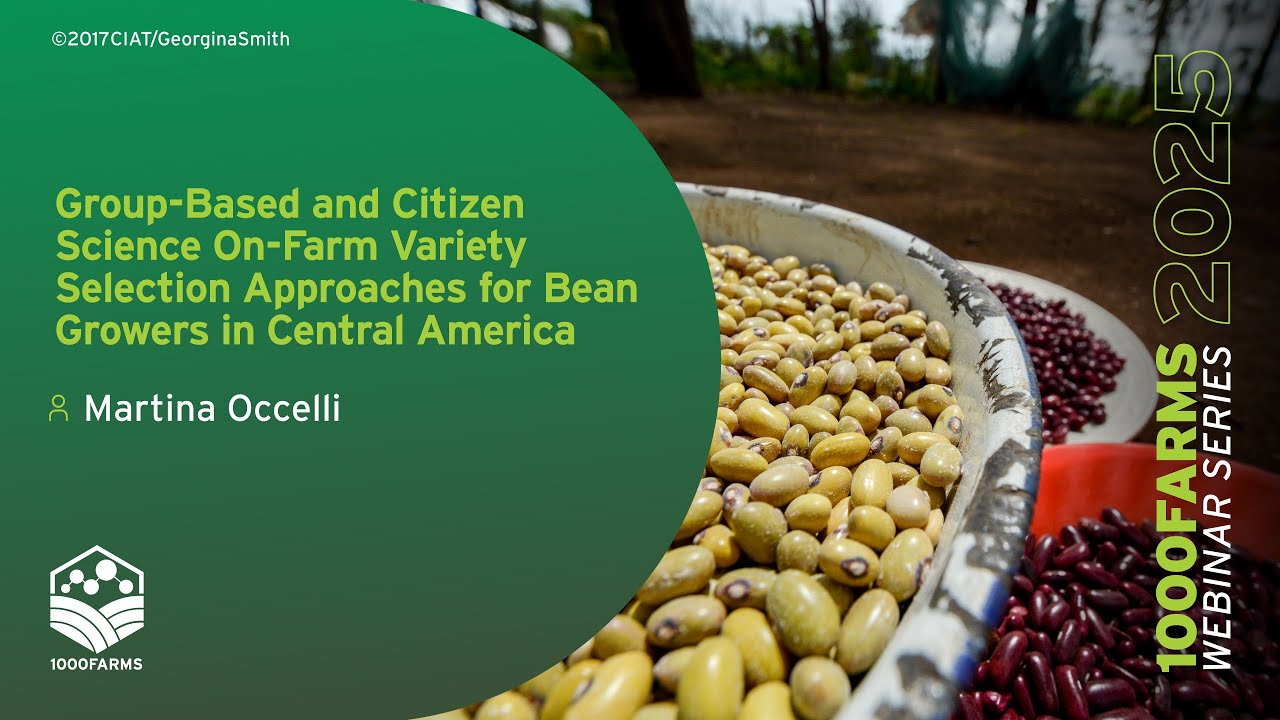Click on the link below to view the webinar by Dr. Martin Occelli from Cornell University on 10 July 2025 entitled Group-based and citizen science on-farm variety selection approaches for bean growers in Central America
Presenter Bio: Martina is an Agricultural Economist and Research Associate at Cornell University, where she collaborates in the Equitable Agricultural Research Lab, led by Prof. Hale Tufan. She is also a visiting scholar in the Food Systems Economics and Policy group at ETH Zurich, hosted by Prof. Eva Meemken. Her research challenges assumptions about participatory research and farmers’ engagement, revealing role and impact of farmers’ knowledge in the process of adopting a new agricultural technology.
For more info, contact Martina at: (mo386@cornell.edu)
Summary : In this study, we compare a citizen science on-farm testing approach — triadic comparisons of technology options (tricot-PVS) — with the benchmark state-of-the-art group-based participatory variety testing approach (group-PVS) over a set of socioeconomic outcomes. We focus on on-farm testing of common bean (Phaseolus vulgaris L.) in the Trifinio area of Central America. We measure the impact of these two approaches on bean growers in terms of on-farm diversification and food security. We use data from 2000 smallholder farmers, which were randomly assigned to tricot-PVS, group-PVS or control. We find comparable levels of on-farm diversification among treatments, but differences in food security derived primarily by farmer-scientist interactions. This study contributes to inform more inclusive, demand-driven varietal design approaches that democratize participatory varietal selection programs.
The paper is co-authored with Jorge Sellare, Kauê De Sousa, Matteo Dell’Acqua, Leida Mercado, Saul Paredes, Juan Robalino, Juan Carlos Rosas, Jacob van Etten and can be found here: https://doi.org/10.1111/agec.12819
| Question | Answer |
|---|---|
| Were you surprised by this difference in household security being being higher for the group based selection? | I found it interesting—and surprising—that variety testing showed a lasting effect even three years later. I usually see short-term benefits, like farmers becoming more aware of the varieties they grow and mutual learning between farmers and scientists. But I didn’t expect to see such a long-term impact on food security. Honestly, I was more focused on potential attrition over time, since that’s typically a big concern. |
| Given that this study focused only on beans in Trifinio—where adoption was unexpectedly low despite using regionally adapted varieties—what do you suggest for future studies to build on these findings? How can we explore whether similar effects occur with other crops, without relying on large, costly trials across multiple countries? What kinds of follow-up studies could give us a strong signal while staying practical and affordable? | I think that’s a really interesting question. Lately, I’ve been experimenting with photovoice and tricot, and I see potential in combining them. Participatory varietal selection allows for visible peer learning, but even with tricot, farmers often interact informally. What I’d love to try is adding a small reflective module to tricot—something that lets farmers think about and document their experiences. It might not meet the strict standards economists usually want, but it could offer valuable stories about how tricot influences the way farmers evaluate varieties or even other crops. I’m also interested in encouraging more peer learning—like having farmers visit each other’s plots, compare experiences, and report back. That wouldn’t require fully organized groups but could still foster meaningful interaction. Farmers already exchange ideas on their own; our role should be to better capture those conversations and insights in the data we collect. |
